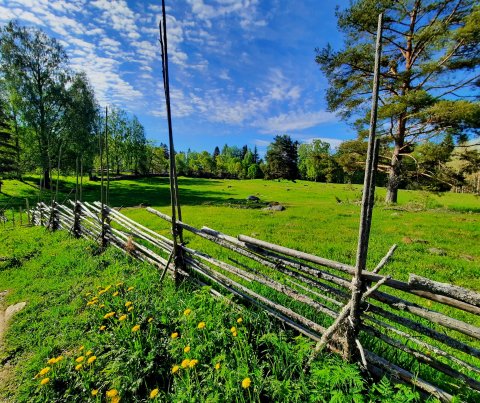We are happy to welcome the Finnish Agroforestry Network who joined EURAF as a new member in June 2022.
The Finnish Agroforestry Network was established at Qvidja farm in 2019 as a joined initiative between the Baltic Sea Action Group, Natural Resources Institute Finland, the Organic Research Institute Finland, the AFINET project, several farmers and other interested agroforestry stakeholders. Currently the Finnish Agroforestry Network has about 234 members of which 14 now joined EURAF as a member.
Until now, perhaps of its northern location which makes agriculture rather challenging and difficult, Finland has always been trying to promote agroforestry on its own. The conference in Sardinia was a great inspiration and made us realize that by using the power of the crowd promoting agroforestry in Finland may become more successful so finally we took the step and joined EURAF.
For the coming year, Michael den Herder is the national delegate and Iiris Mattila is the deputy National delegate for Finland.
The aim of the Finnish network is to spread information on agroforestry and the possibilities for practicing agroforestry in Finland. To do so, in the past the network has organized several events such as open days, field days or farm walks. In Finland there are several agricultural colleges (e.g. LIVIA Vocational School and NOVIA University of Applied Science) which organize agroforestry courses, and these colleges are active partners in the network by organizing courses and field demonstrations. The network will also be active in exchanging experiences on agroforestry resulting from several ongoing projects. In earlier years the AFINET project, Baltic Sea Action group, LUKE and the University of Helsinki organized some events together and also in the near future our network will continue to organize these kinds of events. New agroforestry or ongoing agroforestry projects in Finland are for example Carbon Action, DIGITAF, and AF4EU projects which are all focusing on spreading knowledge on carbon neutral farming and agroforestry.
Wood pastures, forest grazing and reindeer husbandry are the most common types of agroforestry in Finland, and these practices have demonstrated that with proper management it would be possible to have climate neutral meat production. Non-wood forest products are collected and consumed by many Finnish families and form an important part of the national tradition. Many Fins collect berries and mushrooms and freeze them for winter, when other fresh fruits are expensive or scarce and a large part of our daily vitamins comes from imported fruits. There would be opportunities for other types of agroforestry in Finland too, especially with ongoing climate change with increasing risk of droughts, wind erosion, nutrient leaching and associated crop losses. Therefore, the establishment of windbreaks, hedgerows or even alley cropping systems is not such a crazy idea in these northern areas. In addition, active mushroom cultivation in forests is an interesting option for forest owners who would like to earn some extra income by having their forest produce food instead of wood only. All in all, there are many opportunities for agroforestry in Finland and we hope that with the Finnish Agroforestry Network we can make a useful contribution in making the Finnish agricultural sector more climate resilient, enhance carbon neutrality while maintaining food security.
Michael den Herder












